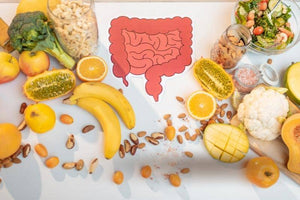Written By  Guest Nutritional Scientist Chris Speed
Guest Nutritional Scientist Chris Speed
blog

How Does It Work?
Who Needs Vitamin K2?
Are There Any Contraindications?
Bone Health & Vitamin K2
Kudos for K2
What is vitamin K2? And are you getting enough of it? Nutritional scientist Christopher Speed reports.
Vitamin K is, in fact, a group of fat-soluble vitamins, with the two most important being vitamin K1 (phylloquinone) and K2 (menaquinone). Vitamin K1 is needed to form thrombin, a blood-clotting chemical, while K2 is essential for building and maintaining strong bones, and avoiding arterial calcium deposits. Research also suggests that vitamin K2 plays a role in cardiovascular, brain, skin and prostate health.
How Does It Work?
Vitamin K2 activates inert proteins in the body, such as Matrix GLA Protein (MGP) and osteocalcin; this action in turn preserves the healthy structure and function of the cardiovascular system as well as increasing bone density and strength. A three-year research study has shown that a daily dose of 180 mcg of vitamin K2, in the form of menaquinone-7 (MK-7), improved bone mineral density and strength and arterial flexibility in post-menopausal women.
What are the best sources?
Good sources of vitamin K include yoghurt (live), alfalfa, egg yolks, broccoli, Brussels sprouts, leafy green vegetables, green tea, kelp, wholegrains, liver, tomatoes and fish liver oil. The traditional Japanese dish natto (fermented soy beans) is the richest known source of natural vitamin K2 as MK-7. Fermented foods like mature cheeses and curd also supply vitamin K2, but only at relatively low levels.
Who Needs Vitamin K2?
Quite frankly, everyone does. Generally speaking, the typical Western diet contains insufficient amounts of vitamin K2 to adequately activate MGP, which means about 30 per cent of vitamin K2-activated proteins remain inactive in the body. Supplementation with vitamin K2 is therefore the optimal solution. To achieve long-term preservation of cardiovascular and bone health, I would recommend the therapeutic dose used in the clinical trials mentioned earlier, which is 180 mcg a day. I would also recommend MenaQ7® vitamin K2 as MK-7, supplied by NattoPharma ASA; this company is a world leader in vitamin K2 research. It is MenaQ7® which has been used in most of the studies demonstrating the benefits of vitamin K2.
Are There Any Contraindications?
It is recommended that patients on warfarin or other blood thinners consult with their doctor before taking a vitamin K2 supplement.
For more information on vitamin K2, visit www.vitamink2.org
Bone Health & Vitamin K2
While we have all heard the messages about building bones by getting plenty of sunshine (best free source of vitamin D) and eating calcium-rich foods or taking a supplement, an astonishing 6.3 million Australians still suffer from low bone density – and 1.2 million of them will also develop osteoporosis, where bones become fragile and easy to fracture. Why?
Studies suggest that the missing link may be vitamin K2: while we still need calcium, vitamin D and exercise for the formation of strong bones, it appears that vitamin K2 is the catalyst that helps the bones to absorb these critical nutrients in the correct way. The body needs to ensure that calcium is directed to and utilised by the bones, and does not go to other areas where it may cause health problems. For example, too much calcium can build up around the arteries, blood vessel walls and soft tissue, causing hardening, or in the kidneys, resulting in kidney stones. Vitamin K2, however, has been shown to prevent calcium-associated health risks like arterial calcification by up to 50 per cent, while still preventing osteoporosis.
Information presented is for information purposes only and is not intended to replace advice or treatment from qualified healthcare professionals. The information is not intended to treat or diagnose. Always consult your healthcare professional before taking nutritional or herbal supplements. If you are pregnant, breastfeeding, have any allergies or diagnosed conditions, or are taking prescription medications, always consult your healthcare professional before taking nutritional or herbal supplements.
Binge Read on these

Anzac Biscuits Recipe: Made with Organic Ingredients

Mother's Day Gift Ideas

What are you doing to support your immune health?

Go With Your Gut

Anzac Biscuits Recipe: Made with Organic Ingredients

Mother's Day Gift Ideas

What are you doing to support your immune health?

Go With Your Gut

